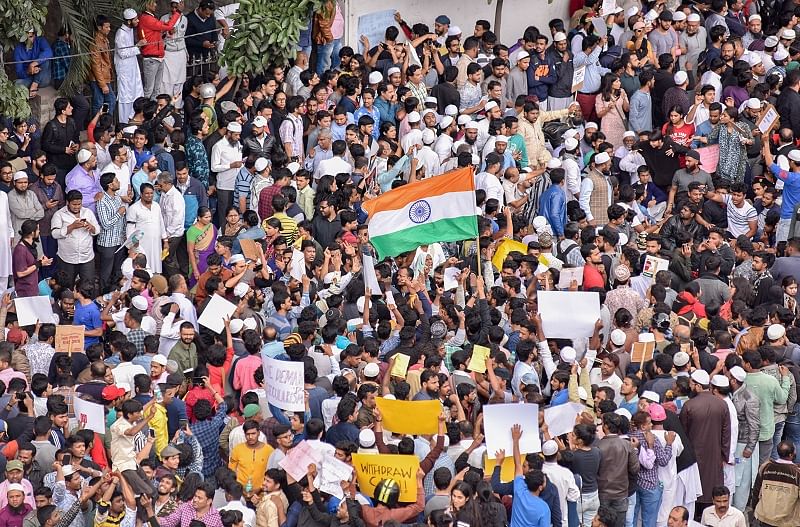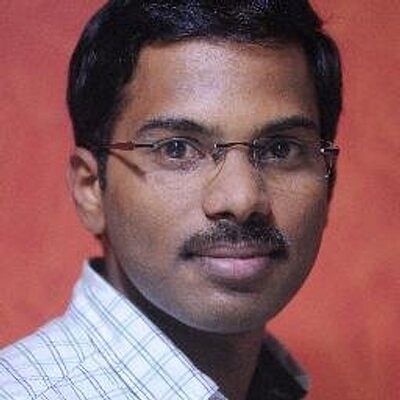
Amid the collective defiance by many states against the National Register of Citizens (NRC) and Citizenship (Amendment) Act 2019 (CAA), Karnataka has caught the attention of the nation by announcing to go ahead with the process of screening ‘immigrants’ close on the lines of NRC process in Assam.
Chief Minister of Karnataka B S Yediyurappa and Home Minister Basavaraj Bommai have reiterated on several occasions that Karnataka will soon implement both NRC and CAA, even as the protests across India are showing no signs of subsiding.
Considering that the protests have by and large turned violent in most of the BJP-ruled states, forcing them to focus more on quelling the rebellion, the Karnataka government, despite a similar such situation, has surprised many by preparing itself to put the Act into effect.
Sources in the state government revealed to DH that Karnataka could perhaps be one of the first states in the country in implementing both NRC and CAA, with the work on implementation rumoured to start as early as January 2020.
Infiltration of illegal immigrants from neighbouring countries into Bengaluru has always been debated in the city, with several BJP leaders raising the issue multiple times in the state legislature.
Time and again, enforcement agencies, including the Union Home Ministry, state police and intelligence sleuths have been silently gathering data of illegal immigrants, especially those from Bangladesh, settled in Bengaluru and other parts of Karnataka. Even though illegal immigrants are distributed widely across India in the past one decade, Karnataka is said to have been proactive in identifying and flagging the problem at the national level.
While the Centre, successful in getting the bill passed in Parliament, is yet to come out with a road map for implementation, Karnataka is alleged to have completed one round of identification of illegal settlers believed to have been spread predominantly across southern Karnataka districts.
Addressing BJP workers in Bengaluru on Saturday, Law and Parliamentary Minister J C Madhuswamy told that these policies will not affect all but only a few thousand. “As per the intelligence report, this entire process will affect only about 30,000 people,” he said.
In fact, according to the last such estimate of ‘illegal immigrants’, especially those of Bangladeshi origin, done jointly by the Union Home Ministry and Karnataka police, Bengaluru alone had more than 13,000 Bangladeshis who predominantly comprised Muslims.
“Over the months, the numbers may have shot up by one or two thousand in the city. While most of the men have been employed in waste segregation and other menial jobs like housekeeping, security at multinational companies on the outskirts, women have been working as domestic maids,” said a senior official of the government attached to one of the enforcement agencies in Bengaluru.
The illegal immigrants are believed to be distributed in about 28 places in Bengaluru with their ‘leaders’ supervising the affairs of the bastis (settlements).
“Of the known places in the city, only five or six locations in Bengaluru East have the largest population of illegal Bangladeshis ranging from 1,000 to 8,000 people. All of them have voter IDs and Aadhaar cards specifying their permanent address as only from a few tehsils in some districts of Assam which are all fake,” the official said.
“It is not just in Bengaluru but they have also spread across coffee and tea estates of Kodagu and Chikkamagaluru. By implementing the policies and Acts of the centre we will only pave way for the naturalisation of citizenship,” Madhuswamy explained.
While the Act calls for granting of citizenship to people persecuted on religious grounds elsewhere, the government is yet to come out with guidelines on how to deal with the people who fail to clear the test of citizenship. BJP Parliamentarian from Bangalore South during the interaction with advocates in Bengaluru on Friday said, “The procedure for the nationwide NRC is still being worked out. When it is not yet worked out, why is there an unnecessary fear that Muslims alone will be targeted and asked to submit documents?”
Echoing the similar sentiment, Madhuswamy also retorted, “We have not decided to throw out anybody who fails to prove their citizenship. But some are already taking to streets demanding that they should not be asked about documents, antecedents.”
Acknowledging the collection of data on migrants especially of Bangladeshi origin, Home Minister Basavaraj Bommai, last month, had told media persons, “We are one of the states where people from neighbouring countries have come and settled. We are collecting information about them along with their involvement in criminal activities. Once we get a report from all districts, we will prepare a report and consult the Union Home Ministry on how to go about this.”
Meantime, many have alleged that Karnataka has already set up an infrastructure that would act as ‘concentration camps’ for these refugees. Retired Judge of the Supreme Court Justice
V Gopala Gowda addressing a round table on CAA organised by the Students’ Federation of India in the city on Friday said, “The whole exercise of screening people for citizenship is meaningless as it undermines the rights of the minorities in India. Rather than addressing the ambiguities in the Act, the governments have already begun spending several crores on setting up infrastructure like the building of detention centres near Nelamangala.”
However, the state government officials clarified that this centre would only serve as the detention centre for overstaying foreign nationals and has nothing to do with the NRC or CAA.
Building livelihoods in an alien place, many migrants have also been gripped by panic ever since the protests and talks on NRC, CAA have started across the country.
Immigrants living on the outskirts of Varthur and Bellandur are glued on to their mobiles while trying to catch up with the latest happenings. Frequent visits by the police personnel have also triggered fear among the settlers. Rubel Hussain, living in one of the settlements near Kundalahalli, told DH that many fearing for life have already gone back.
“Several apartments and companies sacked workers citing Bangla origin. We can live in a city like Bengaluru only if we manage to earn a decent salary. The shed rent, food and other expenses are huge. Losing jobs and fearing for life, a few have relocated to different parts of India and a few have gone back to their villages in Bangladesh,” explained Hussain.
In some of the residential complexes, natives have been demanding the immigrants to get NOCs from the police so that they will not be caught in legal battles subsequently for employing immigrants.
Abdulla Zaid, who lives in a shed near Munnekolala near Marathalli said, “I have been living in Bengaluru since 2011. It is only in the past two-three years that suddenly people have been demanding for identity cards and proof of my native. Our family long back migrated from Bangladesh to West Bengal and subsequently came to Karnataka. I am not aware whether my forefathers came to India illegally or legally. But we have nothing to prove as we do not own anything here.”
Deccan Herald is on WhatsApp Channels| Join now for Breaking News & Editor's Picks
